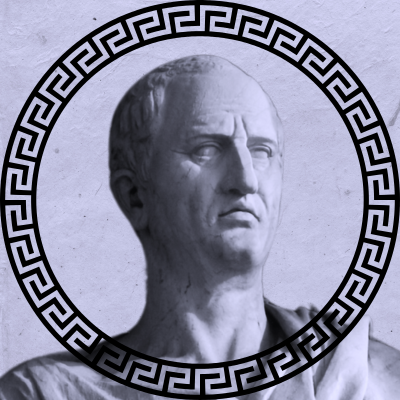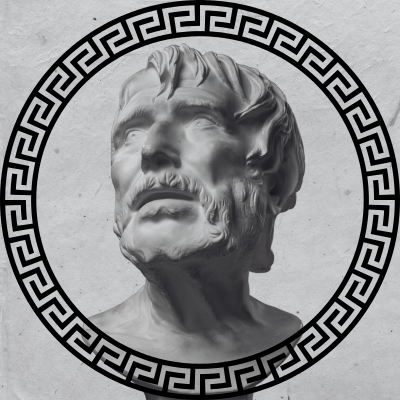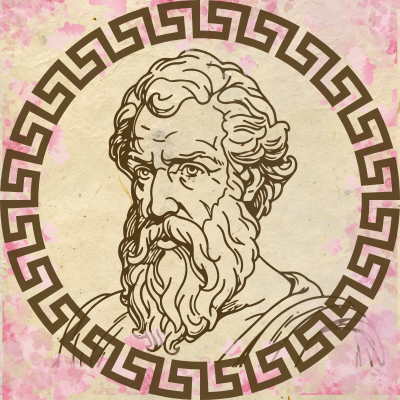
Write something
Cicero On Friendship (MVP 🥇)
A friend is, in effect, another self and friendships are "the best and most beautiful equipment for life (p106; p93)." Cicero's "On Friendship" is THE GREATEST piece of philosophy I have read on the nature of friendship: BREAKING FALSE BELIEFS (p94): Cicero breaks apart some of the common falsities which we take for granted of our friends, and explains why we are mistaken in believing them: 1. "We should apply the same energy to friends as we do ourselves." This is false because "there are many things that we would never do for our own sake, but will do for the sake of friends." 2. "Our good will towards friends should match and correspond to their good will towards us." This is false because it "limits friendship to mere equality in actions and feelings." True friendship "doesn't worry about giving more than it receives (...); to contribute more than its share to the friendship." 3. "Friends should place the same value on us as we place ourselves." This is false because "it's often the case that a person’s spirit is too abject or his hope of bettering his situation is too broken. It’s the friend’s job not to feel the same way, but to make an effort to lift the other person’s languishing spirit and lead him to a better and more hopeful way of thinking." CICERO'S LAWS OF FRIENDSHIP: 1. "Seek only good from friends, do only good for the sake of friends - and don’t wait to be asked! Be always attentive! Banish hesitation! Be ready to give advice freely! Take seriously the good advice of friends. Be ready to offer it openly, even forcefully, if the occasion demands - and also be ready to follow when it’s been offered (p90).” 2. "Don’t ask for anything shameful, and don’t do anything shameful if asked (p89)." THE FOUNDATIONS OF FRIENDSHIP 1. Virtue. “It’s only fair first to be a good man, then to look for another like yourself. With such men it’s possible to have the sort of stable friendship I’ve been discussing, and when they have been united in good will they will take control of the very desires that enslave everybody else, they will rejoice in fairness and in justice, they will always be on the lookout for each other, they will never demand from each other anything wrong or dishonourable. They will cherish, love and even revere each other. Indeed, to take away reverence from friendship is to remove its most precious jewel (p101).” 2. Common Interests: In his dialogue, Cicero writes that the essence of friendships is to be in full agreement in priorities, commitments and opinions (p80). “There’s a similar feeling of love that comes into being when we meet someone whose nature and morals are compatible with ours, for we think we see integrity and virtue burning brightly in them (p85).” “Differing habits accompany differing pursuits. Such differences pull friendships apart (p99)." 3. Trust: Trust is what secures the stability and constancy we seek in friendship. Nothing is stable if it cannot be trusted, this is why it's "equally important to choose someone who is candid and sociable and emotionally compatible" they are equally affected by the same things we are, "all of these things contribute to trust (p96)." 4. Assurance: “It is far from being the case that friendship is cultivated because of need; on the contrary, the kindest and most generous people are those who have the least need of others, thanks to their own wealth of resources, and especially their virtue, which is the greatest source of protection (p92).” Cicero adds that "the more confident you are, the greater your own virtue and good sense, the less needy and more self-reliant you are, the greater success you’ll have in making and keeping friends (p86).”

Seneca On Friendship (STOICISM COURSE COMING SOON)
The wise man "self-contented as he is (...) does not need friends - and yet wants as many of them as possible - not to enable him to lead a happy life; this he will have even without friends (Seneca, Letter IX. p51)." To help you understand what this could possibly mean, we are releasing a new page as part of our Stoicism course. The "supreme ideal" of stoicism "does not call for any external aids (because) once it starts looking outside itself for any part of itself it is on the way to being dominated by fortune (Seneca, Letter IX. p51)." All of Seneca's "valuable possessions" are with him: "Meaning the qualities of a just, a good and enlightened character" since it was his belief that nothing should be regarded as valuable that is capable of being taken away (Seneca, Letter IX p52). In this way we should be content with ourselves that we are "able to do without friends" but this does not mean that we "desire to be without them (Seneca, Letter IX. p48)." You'll get: - An understanding of how to deal with losing friends. - A new outlook on friendships based on dignity. 🔓 AND... IT'LL BE FREE & AVAILABLE TO ALL MEMBERS Seneca makes three points about friendships (Seneca, 2004 p52) 1. There is a "natural instinct drawing one human being to another" and "something inherent in it that stimulates us into seeking friendships (p52)." 2. It is important to harness the skill of making friends. Since 'just as Phidias can carve another statue straight away if he loses one, so our wise man with his skill in the art of friend making will fill the place of someone he has lost (p48)." 3. "To procure friendship only for better and not for worse is to rob it of all its dignity (p51)." Since a person adopted as a friend for the sake of his usefulness will be cultivated only for so long as he is useful (p50)." Seneca's letter IX is a direct criticism of Epicurus' views on friendship. Epicureans thought friendship was a natural and necessary desire because it removed the mental pains of anxiety: knowing someone is there for you when times are tough.In the eyes of a stoic this is almost a sin. Seneca says that "anyone thinking of his own interest and seeking out friendship in this view is making a great mistake (Seneca, Letter IX. p49)." Rather than wishing we had friends to help us when we are in trouble, "on the contrary (Seneca's wise man will make friends so that he) may have someone by whose sickbed he himself may sit, or whom he may himself release when (his friend) is held prisoner by hostile hands (Seneca, Letter IX. p49)."
1
0

Epicurus On Friendship (SEE EPICUREANISM COURSE)
How many friends are REALLY your friends? How can you craft a friendship which leads to mental tranquility? To help you understand the value of your friendships, we have launched a new page as part of the Epicureanism course. This organises Epicurus' ideas of friendship so you can attain the most crucial piece of the puzzle that is tranquility. You'll get: - An understanding of what real friendship looks like. - Another pathway to ataraxia... the tranquility of mind. 🔓 AND... IT's FREE. (BUT YOU HAVE TO BE A MEMBER OF THE LIBRARY FOR 7 DAYS). Epicurus makes two points about friendships (Sellars, 2020. p35). 1. Knowing we have people we can turn to in times of difficulty, even if we never need to, removes anxiety about the future. 2. A community based on the Epicurean friendship is one grounded in mutual care and support, with unspoken assurances of help rather than formal rules and regulations. A positive model for what a functioning community should look like. BTW THIS is how you get closer to having a happy life: Real Friends. PS: Here are some of Epicurus' views on friendship from The Vatican Collection Of Aphorisms: - 23. Every friendship is desirable in itself, but has its origin in personal advantage. - 28. Those who are overly eager to make friends are not to be approved; nor yet should you approve those who avoid friendship, for risks must be run for its sake. - 34. It is not so much friends' services that we find serviceable as the assurance of their services. - 39. Neither he who is always seeking material aid from his friends nor he who never considers such aid is a true friend; for one engages in petty trade, taking a favour instead of gratitude, and the other deprives himself of hope for the future. - 52. Friendship dances round the world, summoning every one of us to awaken to blessedness. - 56-57. The wise man feels no more pain when being tortured himself than when his friend tortured, and will die for him; for if he betrays his friend, his whole life will be confounded by distrust and completely upset. - 61. Most beautiful is the sight of those close to us, when our original contact makes us of one mind or produces a great incitement to this end.
2
0

1-3 of 3
Suggested communities
Powered by

